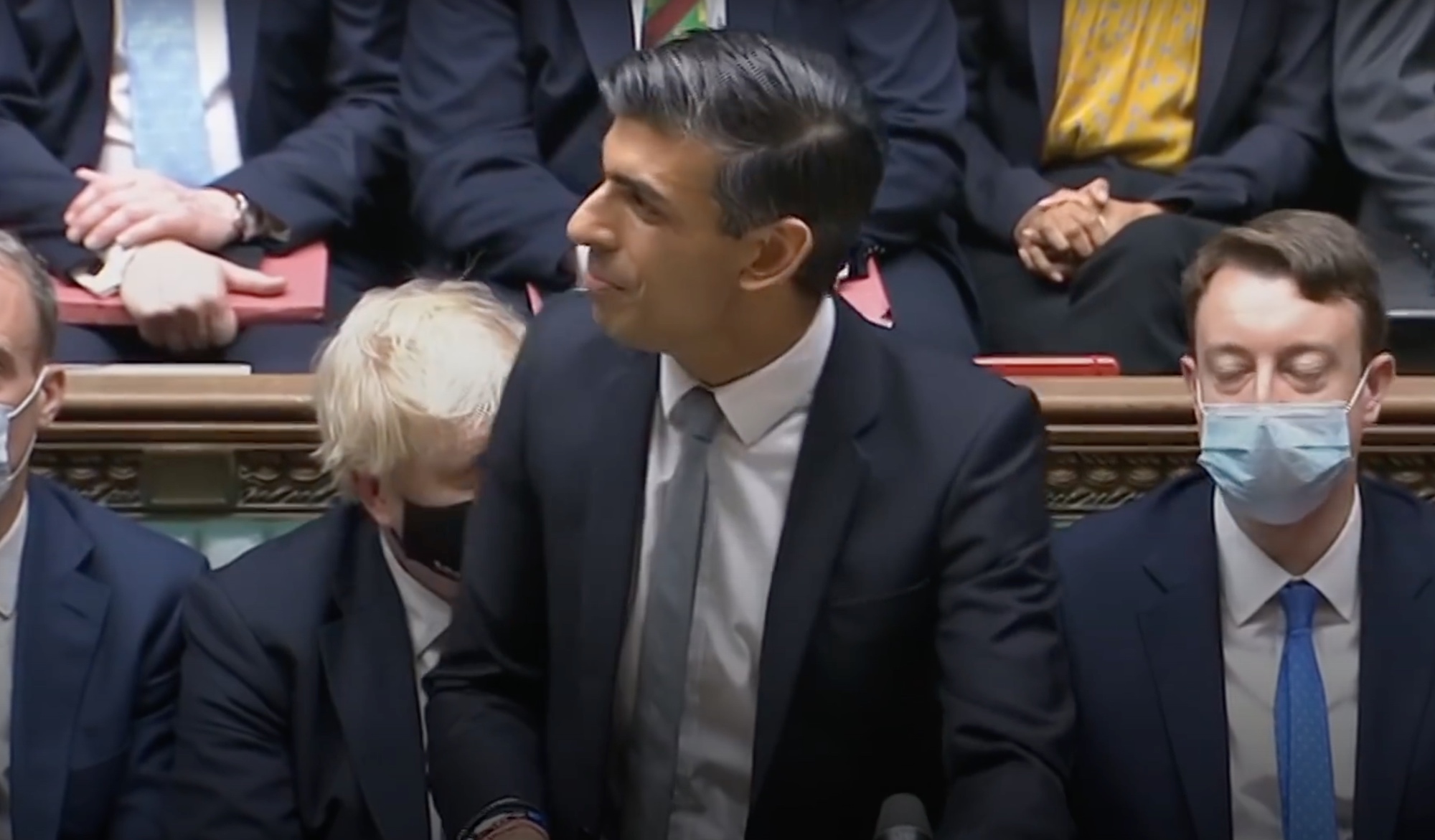What are the advantages of the new UK Scale-up visa and who can apply?

 | vanessa@vanessaganguin.com +44 (0) 20 4551 4787 +44 (0) 7855 817714 |
 | vanessa@vanessaganguin.com +44 (0) 20 4551 4787 +44 (0) 7855 817714 |
UK Chancellor Rishi Sunak has revealed more details about a new visa due to commence next Spring to make it easier for growing firms to hire top talent from around the world – the Scale-up visa. So what do we know thus far about this new immigration route?
UPDATE August 2022: How will the new Scale-up visa work?
Contact us on 0207 033 9527 or enquiries@vanessaganguin.com if you may benefit from advice on your company’s eligibility or require assistance with the sponsorship process.
What are the benefits of the Scale-up visa?
Due to commence in spring 2022, the Scale-up visa looks set to be a smoother route for eligible employers and employees than the Skilled Worker visa, mainly as this “fast-track” route appears not to require the time, expense and responsibility of obtaining a sponsor licence and sponsoring someone on this immigration path.
In May 2021, the Home Office published its policy paper, “New plan for immigration: legal migration and border control strategy statement” which first hinted at how this may work. It stated: “in Spring 2022 we will also introduce a new, unsponsored points-based route to attract the brightest and best to the UK, with a particular emphasis placed on the very high skilled and academically elite. Within this route we will create a ‘scale up’ stream that will allow those with a job offer at the required skills level from a recognised UK scale-up to qualify for a fast-track visa, without the need for sponsorship.”
The Scale-up visa will require a “high skill” job offer from a UK employer and the minimum salary is set to be £33,000. This is higher than the £25,600 minimum salary requirement to be eligible for the Skilled Worker visa route, though £33,000 will be a lower salary threshold than that required by many of the Skilled Worker occupations commonly employed by Scale-ups. For instance, under the UK’s points-based immigration system, to come to the UK via the Skilled Worker route, IT analysts and systems designers must be paid the going rate of £36,600 unless they have other tradeable points that make up for being paid less.
Who will be eligible for the Scale-up visa?
Like the Skilled Worker visa, the Scale-up route will be part of the UK’s points-based system for immigration. So far the only requirements announced are the offer of a highly skilled job with a minimum wage of £33,000 and English language proficiency.
To make use of this fast-track immigration route, employers would need to demonstrate that they are a scale-up by showing a growth rate over 20% for either annual average revenue or employment over a three-year period. Firms should have started this period with at least 10 employees. The Government says it will review extending the requirements to also allow companies with an expectation of high growth.
According to the ScaleUp Institute’s analysis of Office for National Statistics figures, there were 33,445 firms with 20% annual increase in growth of employees or turnover in 2019, employing 3.2 million people and generating a total turnover of £1.1 trillion for the UK economy. Many of these may not be able to boast such growth for three years which included a global pandemic, but nevertheless, a great many people and companies should benefit from this fast-track route to employ talent from around the globe.
Is the Scale-up visa extendable and can family members join applicants?
People on a Scale-up visa will be able to change jobs and employers. Their visas should be extendable, so it is likely there will be a route to settlement. More details will be released before the visa starts in the Spring. People who meet the requirements can generally apply for citizenship once they have held indefinite leave to remain for five years.
There has been no announcement yet regarding family members, though similar routes such as the Skilled Worker visa have provisions for spouses, partners and children to accompany the Skilled Worker to the UK.
Why is the Scale-up visa being introduced?
The UK Government is bringing in a raft of measures as part of its plan to make the UK a global innovation hub by 2035 and they can’t come soon enough.
A post-pandemic investment boom and the immigration hurdles of Brexit have left Britain’s tech and innovation ecosystem with an urgent shortage of highly skilled staff. Many of the employers involved will be among those UK scale-ups able to make use of the new visa having had three years’ annual average growth of 20% despite the vicissitudes of the COVID-19 global pandemic and Brexit. The British tech sector employs three million people yet the number of open adverts for tech vacancies is 42% higher than pre-pandemic levels in 2019, according to a September report from Tech Nation and jobs search engine Adzuna.
Scale-ups rely heavily on international talent, with 47% surveyed by the Scaleup Institute employing staff from the EU and 36% staff from outside the EU. 49% of those currently employing staff from the EU insist it is vital or very important for them to continue to be able to, along with 41% employing staff from elsewhere. For 21% of scale-ups surveyed in the 2021 annual review, a quarter or more of their staff come from outside the UK, so it’s no surprise that 45% of scale-ups currently employing staff from overseas insist it would be very important or vital to have access to the fast track visa for hiring overseas being developed by Government.
What other developments can we expect to help bring talent to Britain?
Global Talent Network
Along with the Scale-up visa, the Chancellor of the Exchequer also elaborated on a Global Talent Network in his autumn statement. This network, Rishi Sunak said, would “bring highly skilled people to the UK in key science and technology sectors.”

The Global Talent Network will initially launch in 2022 in the Bay Area and Boston in the US, and Bengaluru in India and work with businesses and research institutions to identify UK skills needs and source talent in overseas campuses, innovation hubs and research institutions to bring to the UK. A concierge service will also be available to support people moving to the UK.
Entrepreneur Programme
The Chancellor also committed the Department for International Trade Global Entrepreneur Programme to “bring an extra 100 innovative, highly skilled entrepreneurs to the UK each year.” The scheme offers support to non-UK based founders to help them set up and scale their business from a UK global headquarters.
High Potential Individual
A High Potential Individual route has also been announced as part of the UK Innovation strategy. This is an unsponsored immigration path, allowing “high potential individuals” who have graduated from a “top global university” a route to enter the UK and eventually settle without the need of a job offer. There will not be no need for endorsement by an industry body as most Global Talent visa applicants require. More details are set to be revealed, and the requirements to demonstrate “high potential” may be reviewed and expanded.
Global Business Mobility visa
A new Global Business Mobility visa will also be launched by spring 2022 for overseas businesses to establish a presence or transfer staff to the UK, consolidating the existing Intra-Company Transfer framework with the Representative of an Overseas Business category. This will be a more flexible route for transferring senior and specialist workers to the UK. The UK entity receiving workers will need to have an appropriate sponsor licence in place, with the exception perhaps of Sole Representatives (assuming the Government acts on the Migration Advisory Committee’s recent recommendations).
Innovator visa
As well as these announcements and commitments to further UK Government investment and finance for tech, innovation, research and development, the Government has promised to make the Innovator immigration route more attractive.
Applicants will no longer be required to have at least £50,000 in investment funds or to prove growth in international markets to qualify. Innovators will only need to demonstrate that their business is innovative with a high potential to grow.
To discuss which of these and other immigration routes may be the best fit for you, or for any more clarification, please contact us on 0207 033 9527 or enquiries@vanessaganguin.com.